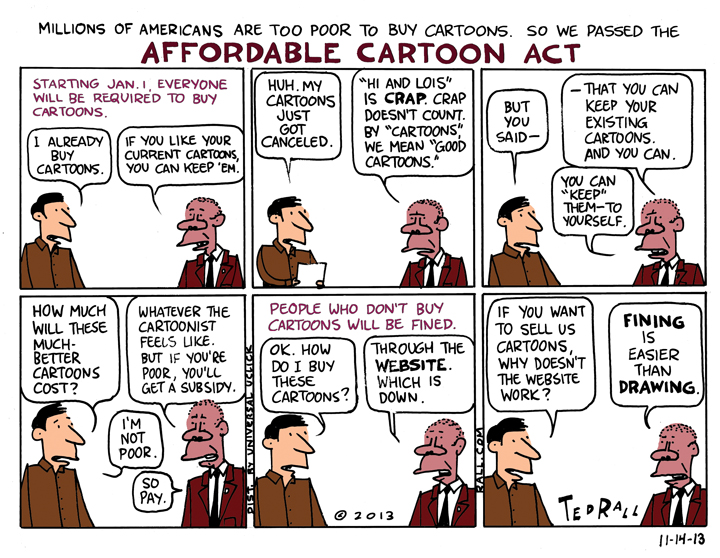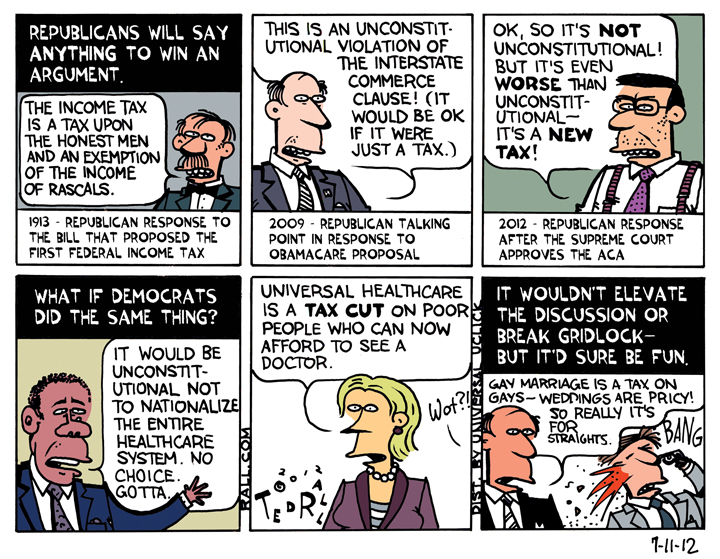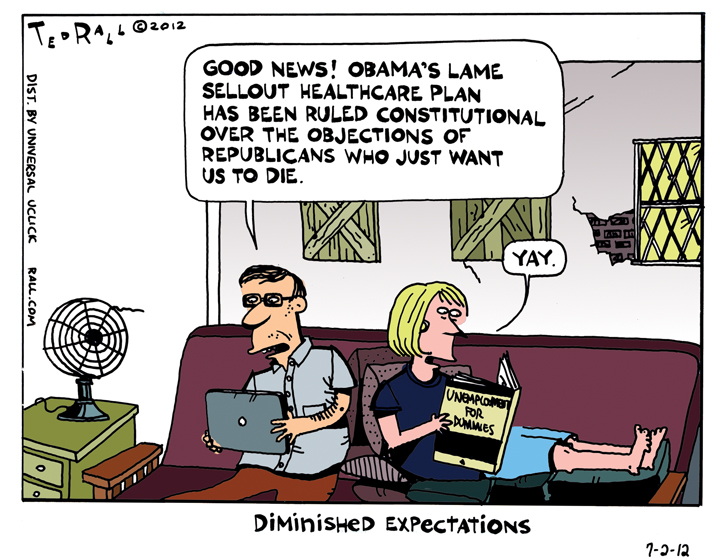Could the clash between Clintonian “realism” and Sandersian “idealism” come down to personal history?
Hillary Clinton’s sales pitch to Democrats is simple:
Get real! The Republicans controlling Congress (and who’ll likely still be in charge in 2017) won’t even allow President Obama to fill the late Antonin Scalia’s vacant seat on the Supreme Court. There is no way in hell, she says, that these intransigent SOBs will pass pie-in-the-sky bills like Bernie Sanders’ proposal to replace Obamacare — an insurance company-friendly scheme originally conceived by a right-wing think tank, which Republicans now call socialistic — with Bernie Sanders’ “Medicare for All,” which would eliminate insurers in an actually socialistic way.
Hillary says she won’t make promises she can’t keep. Maybe that, as opposed to the mountains of cash she collects from Big Pharma and the piles of dough she rakes in from health insurance giants, is why she thinks the United States can’t join the rest of the First World by creating a universal coverage healthcare system.
Or maybe it’s personal. Hillary can’t possibly imagine what it’s like to live paycheck to paycheck. Should she or Bill ever contract some nasty disease, the Clintons’ $110 million nest egg can easily cover the cost of the fanciest doctors.
She’s always been personally comfortable. Hillary grew up solidly middle class, never worrying where her next meal was coming from. Her family were right-wing conservatives, and so was she: in 1964, she was a fervently anti-communist “Goldwater girl.” She was named a partner of a law firm at age 32. You know the rest of the story.
Smooth sailing, financially if not necessarily romantically.
It wasn’t like that for Bernie Sanders (current net worth $700,000) while he was growing up.
Sanders is a product of America’s huge, rarely discussed, working class — people one paycheck away from eviction and homelessness. Bernie’s father, a salesman who came here from Poland alone (his entire family was later wiped out by the Nazis in the Holocaust), struggled to make a living throughout his life. He and his wife, Bernie’s mom, constantly fought over (lack of) money. “There were tensions about money, which I think is important,” Sanders told me when I interviewed him for my biography, “Bernie.”
“There was no sense of long-term security,” Sanders recalled. “A salesman, things can go up and things can do down.”
Ultimately, marital tensions fueled by money problems drove young Bernie to move out of the family home, an overcrowded apartment in the hardscrabble Flatbush section of Brooklyn.
Bernie doesn’t like to talk about his past. Partly, he views personal biography as a distraction from what he cares about: issues, policies. I suspect there’s another reason. Much of Bernie’s early life was painful.
“My father came to this country with nothing. Economically, what motivated him was security, that is, not losing what he had.” Bernie’s mother Dorothy was American, from The Bronx. “My mother wanted more money and wanted him to get a different job or expand what he was doing. He was very frugal. But if he tried to do that, he would have lost everything.” His parents couldn’t reconcile their worldviews. If they’d been earning a proper living, of course, they wouldn’t have had to.
In poor families — poor families that read and follow the news — left-wing activism is baked in from the start. While Hillary was campaigning for the most right-wing presidential nominee in history, Bernie was marching, and getting arrested, for civil rights. Stretched though he and his family were, he worried about those worse off than himself.
Dorothy Sanders suffered from a weak heart — a health condition aggravated by stress, something the Sanderses had in abundance. Shortly after Bernie graduated from high school, Dorothy died.
Bernie went on to college in Chicago, following the hippie trail to Vermont. But he never forgot where he came from. Poverty, Bernie understands, is a blight. And in a country as spectacularly wealthy as the United States, it’s one that’s completely optional, unnecessary and destructive.
Hillary’s incrementalist “we can do real healthcare later” argument reminds me of people who shoot me a quizzical expression when I explain that, after I broke my knee and my skull in a car wreck in 1985, it took me a year to find out because that’s how long it took me to land a job with health insurance. They’re not evil. They just don’t get it.
Clinton and Sanders represent two worldviews: one for whom wealth and privilege have long been assumed as her due, the other whose sympathies lie with those who suffer and die simply because they had the bad luck to be born into the vast majority of Americans, who are broke.
(Ted Rall is the author of “Bernie,” a biography written with the cooperation of Democratic presidential candidate Bernie Sanders. “Bernie” is now on sale online and at all good bookstores.)











